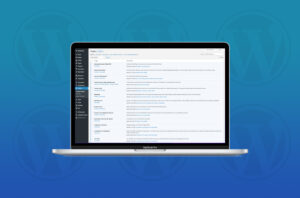Even if your website has a crazy mind-blowing design and incredible interactive features, functionality and graphics alone have proven not to be sufficient, the need for a speed is essential for any successful website.
You may have a great design and a wealth of content or feats that tower over your competitors, but there is considerably more to a well-designed website than graphics and functionality alone. If the content your users are trying to access takes over 30 seconds to load then they’re not going to care what it is; they’ll visit other sites.
Search engines such as Google, Bing and Yahoo! are all now factoring website speed into their ranking algorithms which can make your slower loading website to suffer in the search results. As well as potentially losing users and suffering poor site rankings, there is also a potential cost to the business in terms of hosting and bandwidth fees.
With so many potential impacts, it is crucial to remember that a website is essentially an online extension of your business. Whether it’s for delivering content, marketing or providing member services, the online face of your business needs to draw and capture users and most importantly, retain them. Research shows that page load time has one of the greatest impacts on a users’ perception.
Why Website Speed Matters
Exit rates measure the percentage of visitors to a site who actively leave the site from a specific page. Exit rates generally relate to the load time of a page. For example, in the case of a one second page load, the exit rate may be around 10%. If we increase the page load time by an additional second we see a 5% increase in exit rate to 15% and a five second load time increases roughly to a staggering 25%.
Of course these rate will vary depending on other factors of the site – design, purpose and so forth.
Tweaking site speed gives your search engine results a perk
Google’s release of Caffeine has changed their indexing methodology. Not only do results refresh quicker, but Google is beginning to emphasise how fast a site loads. The effect of this is to encourage more efficient website implementations for all devices (desktop, tablet and mobile).
Bandwidth
Majority of hosting costs revolve around two aspects – physical hosting costs and data costs. Hosting plans generally have a certain amount which can be transferred in a period. If this amount is exceeded, either a higher hosting plan will be required or excess bandwidth charges are incurred to your business.
Why does this matter to your business? Well it’s possible to reduce bandwidth costs by optimising a website correctly. Not only does this help the users of your website by providing a faster, streamlined experience, but can save your business for any additional bandwidth costs.
The Need For Speed
By keeping up to date with the latest trends and best practices, I am able to offer a professional, quality online solution and a highly functional and optimised website implementation. If you are in the market for a new website, or have an existing website and are looking to take it to a new level, contact me today.




